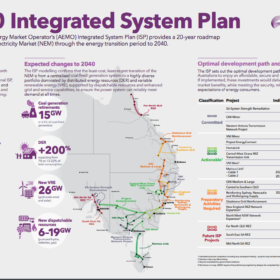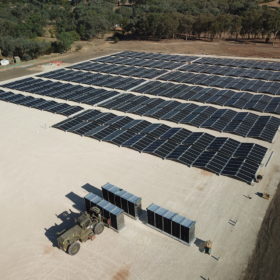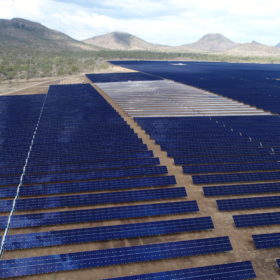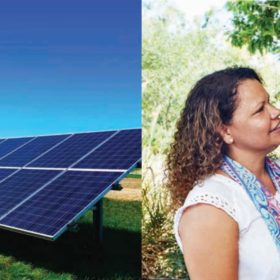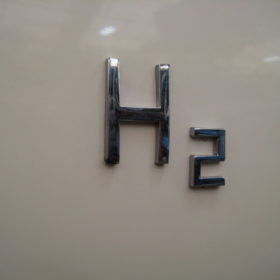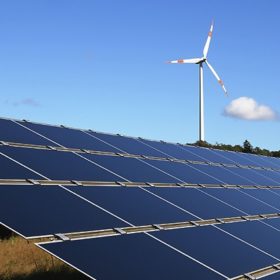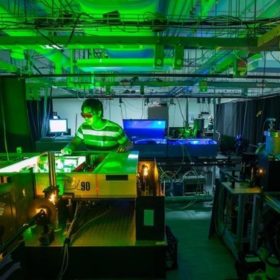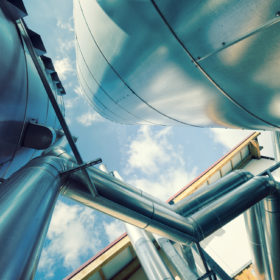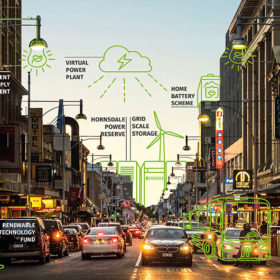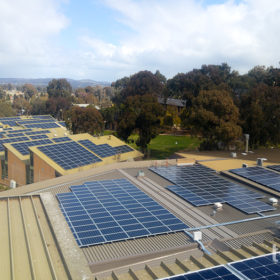AEMO’s 2020 ISP: A roadmap to the world’s fastest energy transition
If it was designed with a focus on reliability, security and the lowest cost for consumers, Australia’s main electricity grid would see periods in which nearly 90% of demand is met by renewable generation. A diverse portfolio of distributed energy resources and large-scale solar and wind generation supported mainly by pumped hydro and batteries would ensure the least-cost transition as the nation’s coal plants retire. Adequate investment in transmission infrastructure will be instrumental in making this a reality.
Federal government awards major project status to Sun Cable’s 10 GW solar plan
The Australian federal government is fast-tracking the world’s biggest solar and storage project in the sun-drenched Tennant Creek region that aims to power Darwin and export solar from the outback to Singapore and eventually Indonesia via a submarine transmission link.
1 GW of solar projects in North Queensland could be curtailed to zero
New system strength challenges have been identified in North Queensland putting the output of nearly 800 MW of additional solar projects at risk.
WA Recovery Plan to invest $66.3m in solar and batteries
The Western Australian Government’s $5.5 billion WA Recovery Plan was released yesterday, the plan features $66.3 million in renewable energy investment, most of that to go on solar and batteries, along with a significant top up of the Clean Energy Future Fund.
Australia adopts international standards to shape its hydrogen future
Eight international standards have been adopted to facilitate safe use, transport and trade of hydrogen across Australia.
Australia’s renewables pipeline continues to grow at record speed led by solar PV
The Australian renewables sector was not immune to a host of challenges that marked the first half of the year, but the pipeline of renewable energy projects in the country reached new heights. While new construction dipped to a four-year low and financial close remained out of reach for a great number of projects, the second half of the year is looking more positive, according to Norwegian consultancy Rystad Energy.
New light: Researchers extend the range of solar cell sensitivity
In a world-first, scientists in Australia and the United States have managed to upconvert light from below the silicon bandgap with the help of oxygen into high energy light that can be captured by silicon solar cells.
7 major players shortlisted for ARENA hydrogen funding round
Commercialisation of hydrogen production is a Government priority. Today seven applicants for ARENA funding of large-scale hydrogen proposals made it through to the next round, in which they will submit full applications for projects that will be expected to commence construction in 2022.
5 trends influencing Australian solar farm design
Digital technologies are enabling integration of vast volumes of data, to provide sophisticated modelling of projects, arriving at highest yield and lowest levelised cost of energy. An Australian leader in the field, Aurecon has been recognised for the innovation of its siteLab software in bringing far-flung stakeholders and disparate sources of information into the one virtual reality.
PV exports in doubt as rooftop solar surges
The ability to feed electricity from rooftop PV arrays into the distribution network may be severely limited in the future, as installations appear likely to exceed expectations. A Cornwall Insight forecast sees some 24.45 GW of rooftop solar to be added through 2030 – a rate at which accelerates the need for a distribution-level market and may see connections curtailed in the future.
